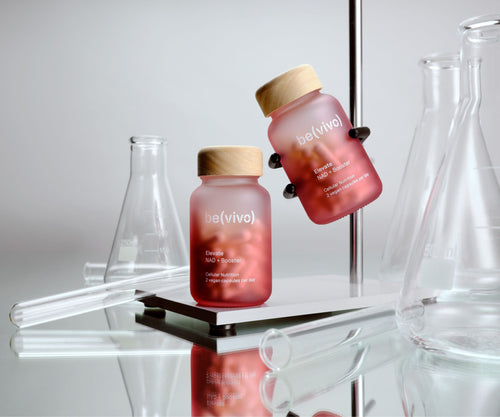Is intermittent fasting recommended for women over 50?
Is intermittent fasting advisable for women over 50, considering the hormonal changes that occur during menopause?
Summary: Intermittent fasting can offer many benefits for women over 50, such as weight loss, prevention of chronic diseases, and increased longevity. However, it's not all advantages; there are potential downsides, including nausea, fatigue, headaches, dizziness, nutrient deficiencies, and hormonal fluctuations with longer fasting periods. For a more flexible approach, a time-restricted eating window may be ideal, especially if you focus on consuming more food earlier in the day. Intermittent fasting has become a popular diet and fasting method for women over 50 who want to address weight gain during menopause and improve their overall health. But does it really work? And, more importantly, is it safe?
Read on for a closer look at this trend.
What is it? Intermittent fasting is a popular diet that alternates between periods of eating and fasting.
For women over 50, who face increased health risks, intermittent fasting can offer some impressive benefits supported by actual research. Menopausal women often face challenges such as weight gain, insulin resistance, and other issues like high blood pressure, which can potentially increase the risk of chronic diseases.
The most popular method is time-restricted fasting, where you fast for a set number of hours each day and eat during the remaining hours. Fasting periods typically coincide with sleep and can vary, such as 12:12, 14:10, or 16:8.
Other fasting methods include:
- The 5:2 diet, where you eat normally for 5 days and restrict yourself to 500 calories for 2 days.
- Alternate-day fasting, where you eat normally one day and reduce your intake to 500 calories the next.
Benefits of intermittent fasting: The benefits of intermittent fasting have been extensively studied in both men and women. Here are some potential advantages for women:
- Weight loss and decreased belly fat: Intermittent fasting can help shed extra pounds and trim the waistline.
- Lower blood pressure: Fasting may contribute to healthier blood pressure levels.
- Enhanced insulin sensitivity: Particularly beneficial for those with prediabetes or type 2 diabetes, improving the body's response to insulin.
- Reduced cholesterol and triglycerides: Fasting can lead to better lipid profiles.
- Less oxidative stress: This helps slow down the aging process.
- Better mitochondrial function: Crucial for those with metabolic conditions like type 2 diabetes and obesity, improving the performance of the cell's energy centers.
- Cellular repair (autophagy): Research indicates that fasting promotes autophagy, a process essential for health and longevity.
Potential risks: Although intermittent fasting offers numerous benefits, it also comes with potential risks. The impact of fasting can vary based on factors like age, sex, and medical history. Some possible risks and side effects include:
- Nausea
- Dizziness
- Headaches
- Fatigue
- Irritability and hunger
- Low blood sugar
These side effects are more common during the first month as the body adapts to the new eating pattern.
Additionally, there are more serious concerns to be aware of:
- Nutrient deficiencies
- Hormonal imbalances
- Potential loss of bone density
Is it safe with this kind of fasting for women over 50 years? Generally, intermittent fasting is safe for most women over 50. However, individual responses to fasting can vary, and there are some key factors to consider when evaluating intermittent fasting for women in this age group.
Your hormones
Many menopausal women worry that fasting might further disrupt their already declining hormone levels. However, research suggests that intermittent fasting does not significantly affect most sex hormones, including estrogen, progesterone, and testosterone.
One hormone, DHEA, has been shown to decrease with fasting in some studies. Nevertheless, the reduction was minor, did not lead to negative side effects, and remained within the normal range for postmenopausal women.
Thyroid function
Some human studies indicate that fasting for 24-48 hours or more can lead to a decrease in thyroid hormone levels. Therefore, a less intense fasting approach, such as time-restricted eating, is recommended to avoid extended fasting periods.
If you have concerns about your thyroid health or already have a thyroid condition, consult your doctor before starting any fasting regimen.
Bone health after menopause
Bone loss is a common issue during menopause, often linked to declining estrogen levels. However, most studies indicate that intermittent fasting does not seem to exacerbate this problem.
In fact, it's more severe calorie restriction or inactivity, particularly the absence of resistance training, that is more closely associated with bone loss in postmenopausal women.
Ensuring an adequate intake of bone-supporting nutrients such as protein, calcium, and vitamin D can help mitigate any potential negative impacts on bone density.
Longevity and autophagy
One of the coolest perks of fasting is its power to kick-start autophagy and boost longevity. Think of autophagy as your body's ultimate recycling program. When it’s in high gear, your body sweeps out old, damaged cells and replaces them with fresh, high-functioning ones. The end game? Healthier, more vibrant aging!

Let's sum it up
Intermittent fasting offers numerous benefits for women over 50, such as weight loss and a reduction in chronic disease. However, it's not the right fit for everyone.
If fasting isn't your cup of tea, don't worry! There are many other effective ways to support healthy aging as you approach menopause and beyond. Prioritize regular physical activity, maintain a nutritious diet, and consider quality supplements like Bevivo Elevate that support healthy aging.
Remember, your journey to vibrant health and longevity is uniquely yours, and there are plenty of paths to take. Keep moving forward and embrace the healthiest version of yourself!








